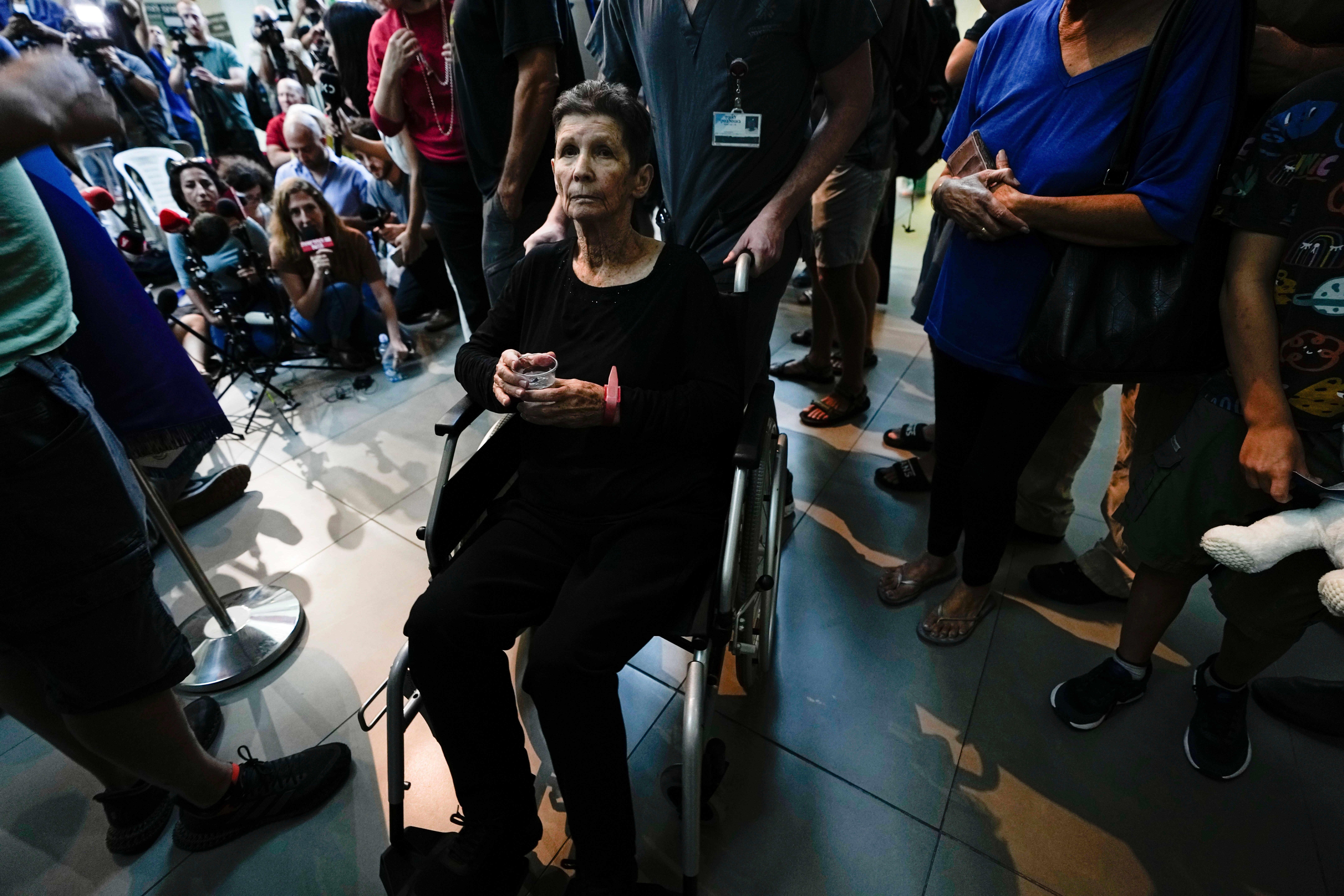What does the latest hostage release mean for those still held captive in Gaza?
The US and Britain are believed to be privately urging Israel to hold off from any ground invasion while hostage negotiations continue, writes Kim Sengupta, while Qatar and Egypt are said to maintain that progress on further releases is possible


The hostages taken by Hamas during their lethal rampage in Israel have become a key factor in how the conflict unfolds, with international powers involved in negotiations over their fate.
The deals being attempted to try and secure their release are likely to have a profound effect on the lives of many more than the 220 people being held in Gaza.
Four of the captives have been freed so far, with health issues given as the reason they were released. But it was thought at one point that almost 50, all dual or foreign nationals, would be released in a group under an agreement brokered by Qatar.
Hamas, according to diplomatic sources, agreed to the move conditional on Israel agreeing to allow fuel – supply of which had been stopped along with food and water in a blockade – into Gaza. After two days of talks, the potential deal fell through because Benjamin Netanyahu’s government insisted that all the hostages be released in return for fuel to be let through, according to officials.
This was rejected by Hamas, who did not want to lose the bargaining power that holding the detainees gave them. Although there appears to be overwhelming public backing in Israel for a ground invasion, there is also the view that every effort should be made to get back the people abducted before military action begins. The families of hostages, who have expressed this view vociferously, say the public backs them on this.
The US and a number of Western countries including, it is believed, Britain are said to have been privately urging Israel not to launch the land offensive while hostage negotiations continue.
Qatar and Egypt, the main conduits with Hamas, are said to believe that further progress is possible. Hakan Fidan, the Turkish foreign minister said: “A number of countries have asked for help in freeing their nationals. We have started discussions with the political section of Hamas. We’ve been putting a lot of effort to make sure that children and foreigners especially are released.”
Joe Biden spoke about the hostages with Netanyahu on Monday following the release of a second pair of hostages. Afterwards, the White House said in a statement that the US president “reaffirmed his commitment to ongoing efforts to secure the release of all the remaining hostages taken by Hamas – including Americans – and to provide for safe passage for US citizens and other civilians in Gaza”.
Biden had reassured the Israeli prime minister of Washington’s political and military support, with two US carrier groups remaining in the Mediterranean as a deterrent against regional adversaries, and American weaponry continuing to be sent to Israel. However, the White House added that Biden “also underscored the need to sustain a continuous flow of urgently needed humanitarian assistance into Gaza”.
Further negotiations could focus on limited easing of the fuel blockade in return for more hostages being freed. They may include Israeli citizens who are not dual nationals. It is believed that neither Nurit Cooper, 79, or Yocheved Lifshitz, 85, who were released on Monday, hold foreign passports. That is unlike the first pair, mother and daughter Judith Raanan and Natalie Raanan, who are US citizens.
One complication in the negotiations is that not all the hostages are being held by Hamas. Some are in the hands of the organisation Palestinian Islamic Jihad and some were taken by criminal gangs who followed Hamas fighters in the raid.
Robert Emerson, a British security analyst, said: “If Hamas makes a deal on the hostages then one would assume that Hamas would be able to deliver on [releasing] people being held in Gaza. But with the bombings, people being on the move, this may not be entirely straightforward.”



Join our commenting forum
Join thought-provoking conversations, follow other Independent readers and see their replies
0Comments